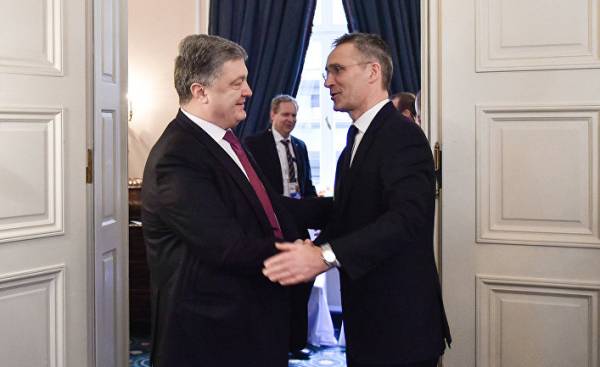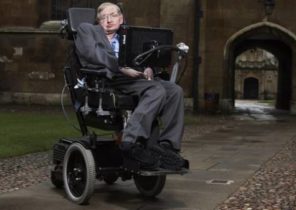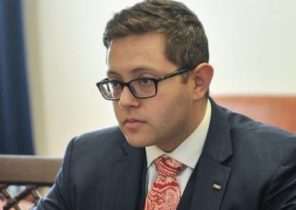
From the beginning of the crisis in Ukraine, the problem of Kiev’s participation in the Western bloc, in particular in the European Union and in NATO nullified the possibility of resolving its conflict with Russia. After the events on the Maidan Ukraine decided to shift its axis from East to West, virtually eliminating its main political and trading partner, Russia, from allies. This decision, obviously, on the one hand, positively regarded the Western bloc, on the other — was regarded by the Kremlin as a threat to its national security.
The loss of Ukraine and, especially, the transition to the enemy — it is obvious the most serious political failure of Russia, not to mention the fact that this situation is fraught with constant tensions with the Alliance. The Kremlin, for its part, never denied his negative attitude to the possible accession of Kiev to the West: this transition is called a pre-condition for the formation of the conflict between Russia and NATO, which led to unpredictable consequences.
In the last few months the conflict in Ukraine, which turned into a permanent, debilitating clash between the rebels-separatists and Pro-Western Ukrainian government were almost forgotten. The world, enthusiastically witness, in particular, for the middle East conflict and the defeat of the “Islamic state” (declared a terrorist organization and banned in Russia — approx. ed.), seemed to have forgotten that in Europe, not far from Moscow, there is a fratricidal war. However, in the last hours there’s a change even in the fact that due to the Ukrainian front, and the risk that soon he can make about yourself to remember is very high.
On 10 July, there was a message that NATO accepted the request of the government of Kiev about the formal start of negotiations on Ukraine’s participation in the North Atlantic Treaty. This was announced by the President of Ukraine Poroshenko at a press conference held on the sidelines of his meeting with NATO Secretary General Jens Stoltenberg (Jens Stoltenberg).
“We have a clear plan of action that should be implemented by 2020 to meet the requirements of accession”, — said the President of Ukraine, confirming thus the intention to develop a clear roadmap with defined timelines, to bring the country into NATO. According to the website Euobserver, NATO Secretary General Stoltenberg confirmed the words of President Poroshenko, and also addressed a warning to Russia: “Kiev will Become a NATO member or not, this decision only applies to allies and Ukraine, — said the representative of the Alliance. — Nobody has a right to try to veto the process.”
Moscow’s reaction followed immediately. Press Secretary of the Kremlin Dmitry Peskov, as reported by the news Agency Sputnik, confirmed hostile attitude of Moscow to launch the process of accession of Kiev to NATO, saying: “Russia has for many years essentially concerned with the promotion of NATO’s military infrastructure to our borders. Potentially, this could be a further step in this direction, which, of course, will not contribute to strengthening stability and security on the European continent.”
Indeed, the process of involving the countries of the former Soviet bloc, NATO has been steadily demonstrates that the West is interested in that as near as possible to come to Moscow, trying to attract all the countries bordering Russia, who may become members of the Alliance. The expansion of NATO to the East is a given, and, as it may apply, it is this phenomenon which is causing the conflict with Russia, considering that its borders are under threat from the Alliance. The extension provides a potential entry into the Alliance not only Ukraine, but also Georgia, which for several months involved in joint military exercises of NATO in Europe, and several key States of the Western Balkans, for example, Montenegro.
Russia, obviously, almost nothing can oppose this extension: Moscow has no instruments to demonstrate that a state cannot become part of an international coalition. Russia knows it. The problem, however, is to understand the extent to which Russia will not tolerate NATO environment, not reacting to it. Moscow’s strategy for years was based on a policy of “besieged fortress” Russia has always been afraid of being surrounded, under siege, this can be seen even in the texts of its strategic doctrine.
However, in recent years the Kremlin was guided in his choice to change the route, in particular, the crisis of the model of a unipolar world, the US proposed, and an emerging China that is not interested in expanding the sphere of influence of Washington.
The expansionism of NATO on the Eastern front could lead, therefore, to two consequences, not necessarily mutually exclusive: the strengthening of the Euro-Asian axis Moscow — Beijing and hostility towards Europe and the West, reflected also in economic and energy spheres. About it makes sense to say if we exclude the threat of military escalation, which could have at least catastrophic consequences.







